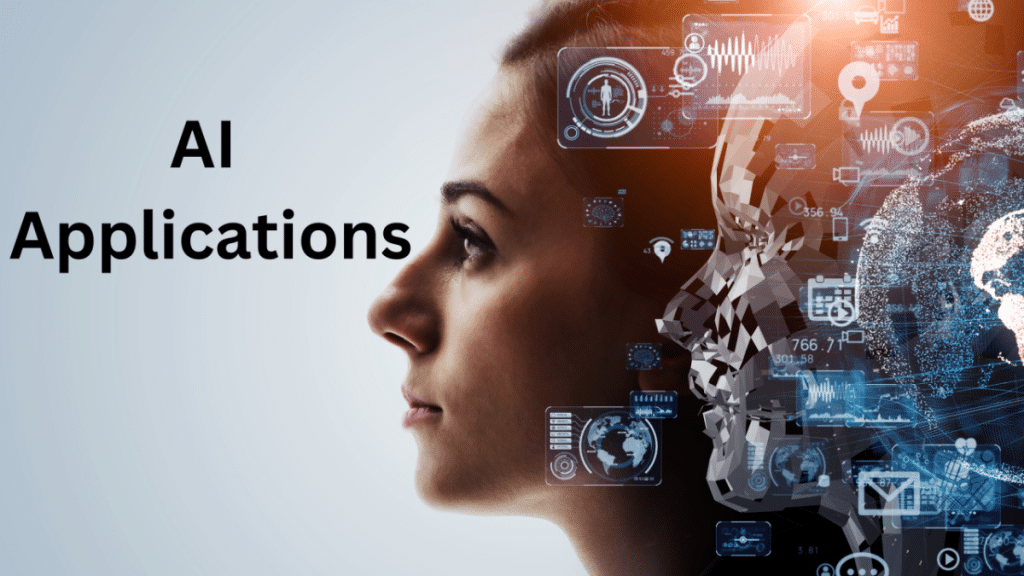Artificial Intelligence (AI) is a powerful technology changing our world in many ways. Today, AI is not just an idea from science fiction; it’s real and everywhere. It’s used in many areas, from hospitals and banks to shops, cars, and even our TVs and phones. The different types of AI are helping us do things better and faster, making life easier in many ways. This technology is growing daily, and it’s exciting to see how it’s being used in many parts of our lives.
Adobe says, “Today, AI is everywhere, especially in our phones and mobile apps, where it performs common tasks like facial recognition, speech recognition, spam filtering, grammar suggestions, and language translation.”
Healthcare and Medicine
Artificial intelligence (AI) is revolutionizing the healthcare sector, transforming the way patients are diagnosed and treated. With the power of machine learning algorithms, medical images such as X-rays and MRIs can now be analyzed with greater speed and accuracy compared to human radiologists. This breakthrough enables faster and more precise diagnoses for patients. Additionally, AI is playing a crucial role in drug discovery, accelerating the process of finding new medicines and treatments for diseases. The remarkable potential of AI in healthcare is paving the way for advancements that will benefit countless individuals worldwide.
Moreover, AI-powered virtual health assistants and chatbots are providing health services to people, offering advice and monitoring patient health remotely. This technology is particularly helpful in areas with limited access to healthcare facilities, ensuring that more people can receive timely and efficient medical care.
Finance and Banking
AI has also made significant inroads into the finance and banking sectors. AI algorithms are used for risk assessment, fraud detection, and managing financial portfolios. By analyzing large datasets, AI can identify patterns and anomalies that might indicate fraudulent activity, making financial systems more secure.
In addition, many banks now use AI chatbots to interact with customers, providing them with information and assistance. This technology improves customer service by offering quick and accurate responses to inquiries, improving overall customer experience.
Retail and E-commerce
In retail and e-commerce, AI is transforming the shopping experience. AI algorithms analyze customer data to provide personalized recommendations, enhancing customer engagement and satisfaction. These recommendations are based on individual shopping habits, preferences, and previous purchases.
AI is also used in inventory management, forecasting demand, and optimizing supply chains. By predicting which products will be in demand, retailers can manage their stock more efficiently, reducing waste and ensuring that popular products are always available.
Transportation and Automotive Industry
The transportation and automotive industries are also benefiting from AI. Self-driving cars powered by AI are becoming more common. These vehicles use AI to navigate, avoid obstacles, and make decisions on the road, potentially making transportation safer and more efficient.
AI is also used in public transportation systems to optimize routes and schedules, reducing wait times and improving the overall efficiency of public transit systems. This application of AI can lead to more sustainable and effective urban transportation solutions.
Entertainment and Media
In the entertainment and media industry, AI personalizes content for viewers. Streaming services like Netflix use AI to analyze viewing habits and preferences, providing personalized recommendations for movies and TV shows.
AI is also used in the creation of content. Different types of AI are being used to generate music, write scripts, and even create art, opening up new possibilities for creativity and content creation. This technology changes how content is produced and consumed, providing more diverse and tailored entertainment options.
The applications of AI are diverse and far-reaching, touching almost every aspect of our lives. From healthcare and finance to retail, transportation, and entertainment, the different types of AI drive innovation and improve efficiency across industries. As AI technology evolves, its impact will likely grow, leading to even more transformative changes in various sectors.
